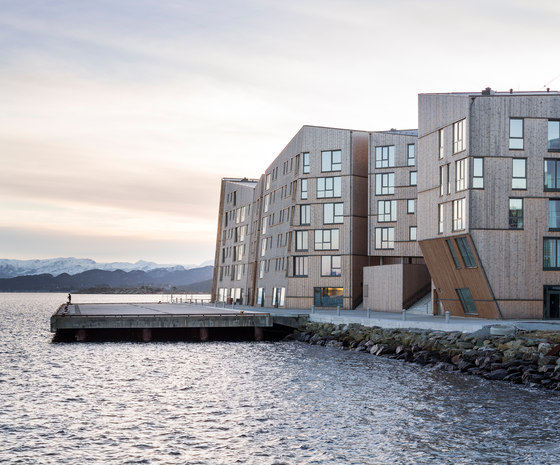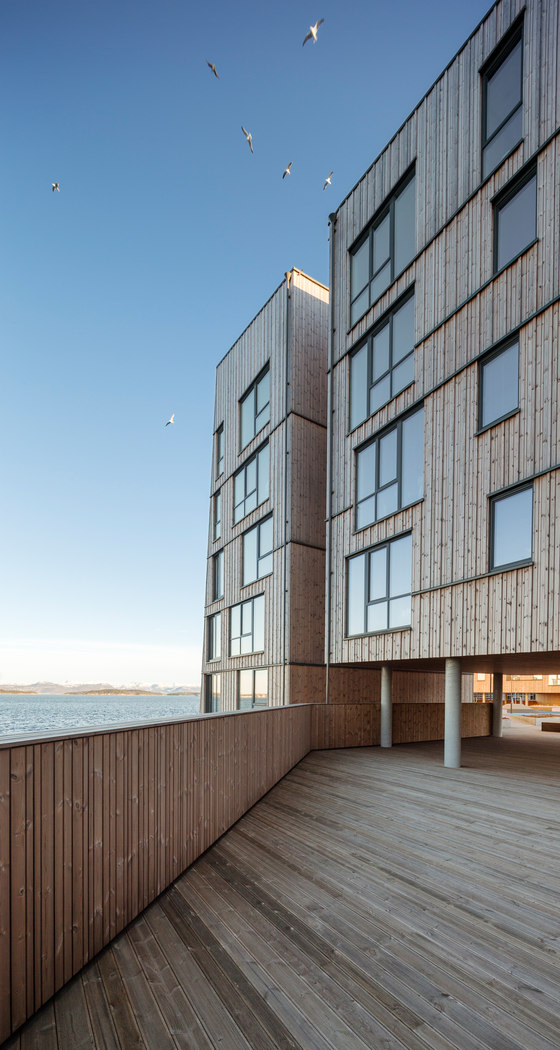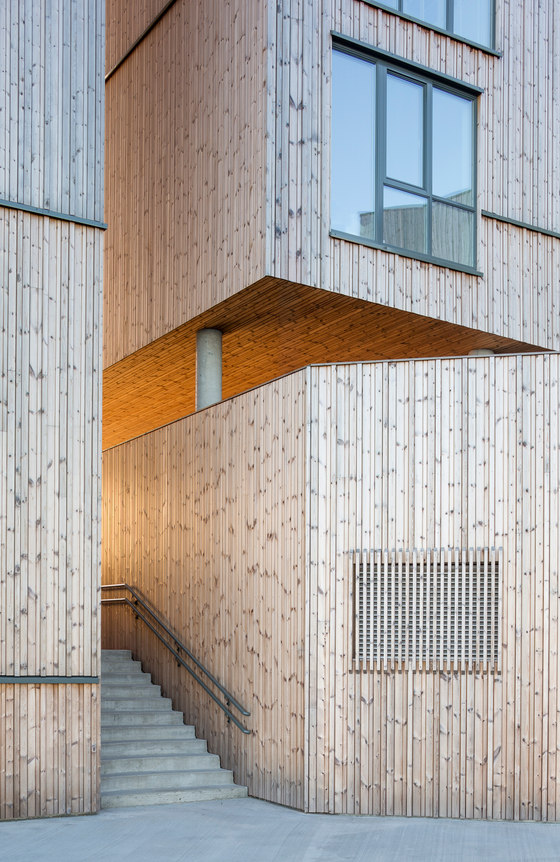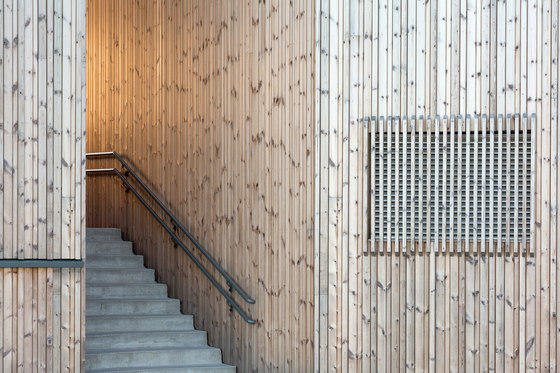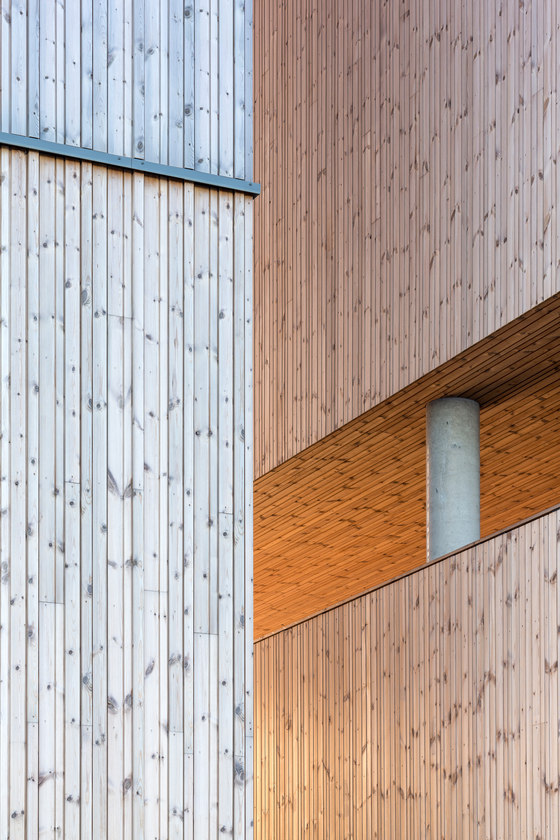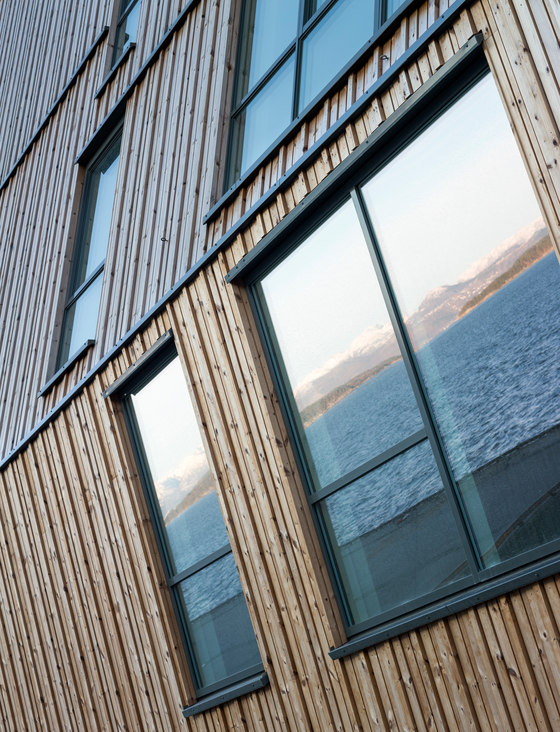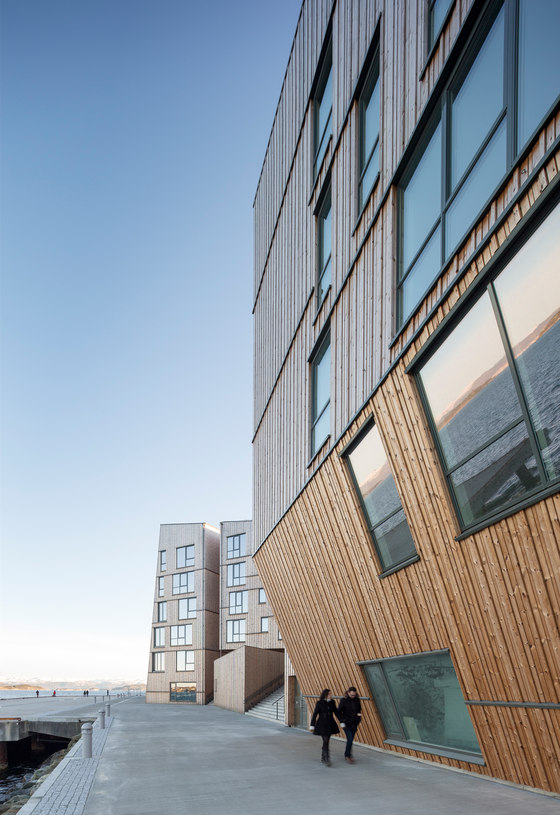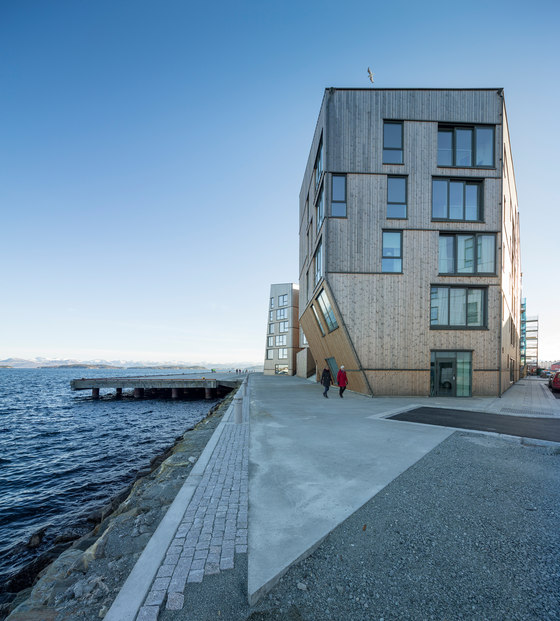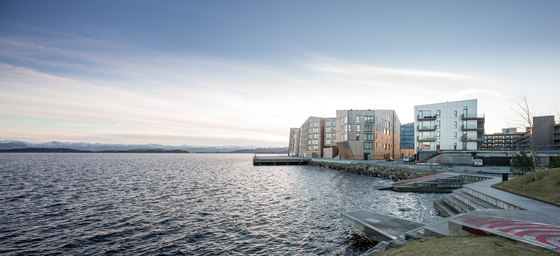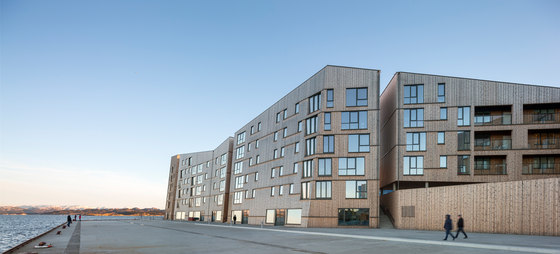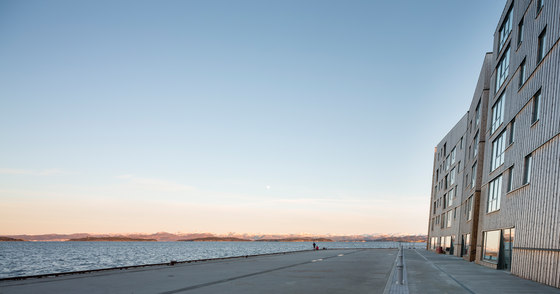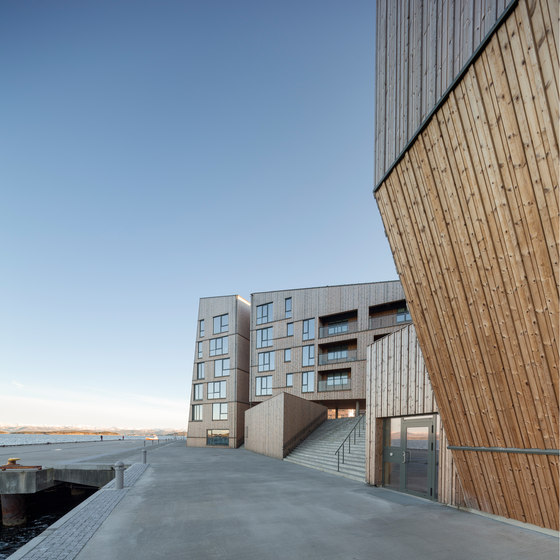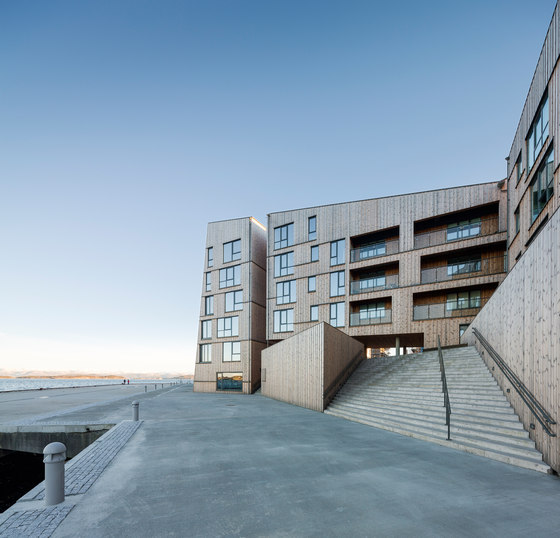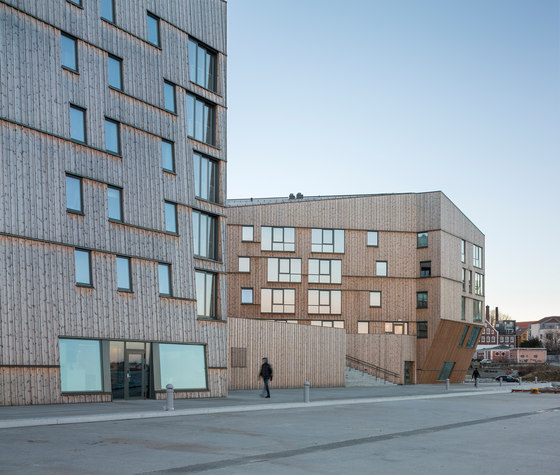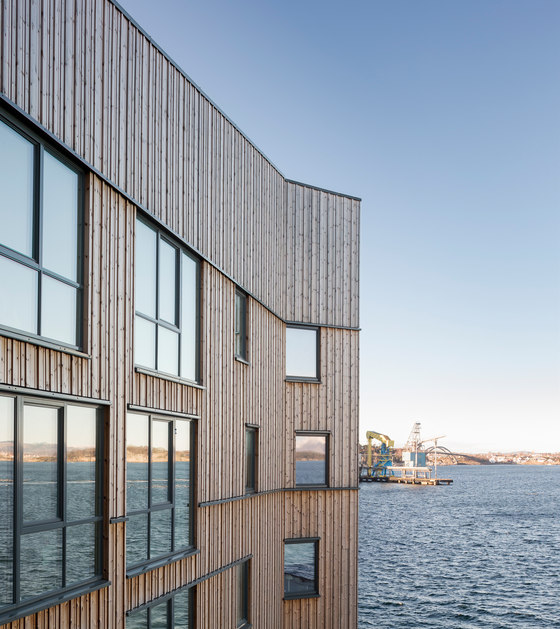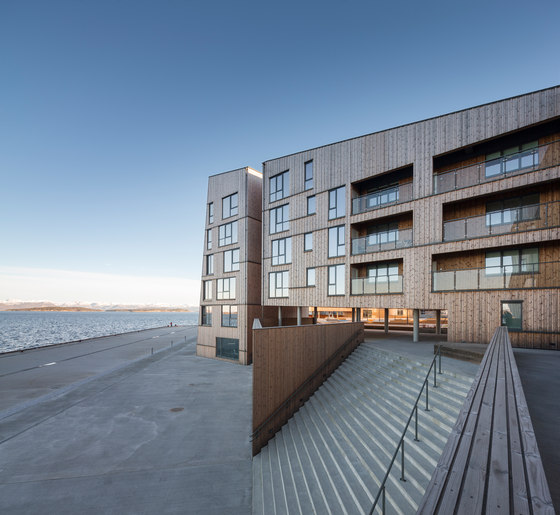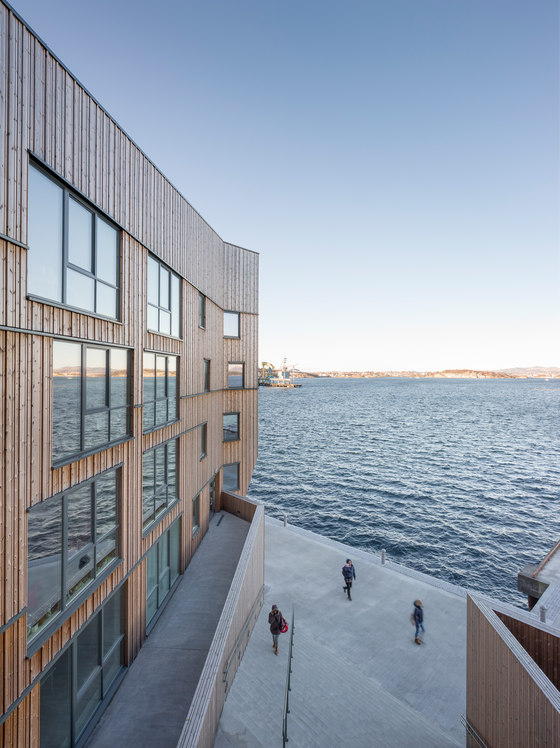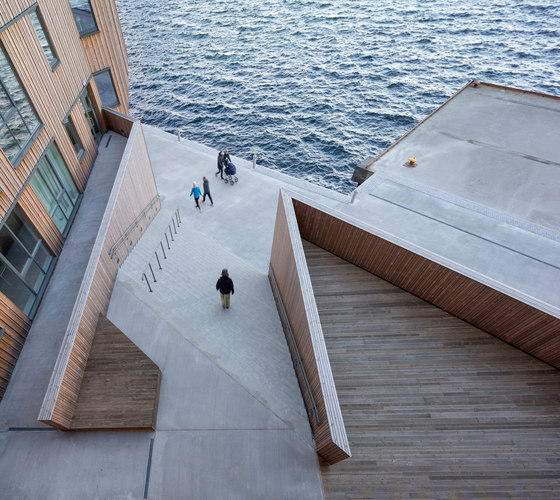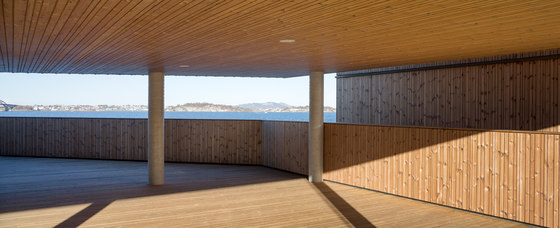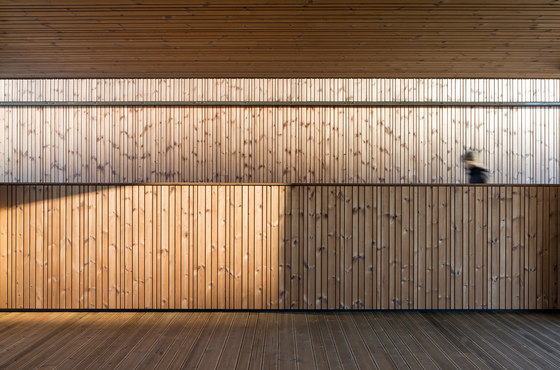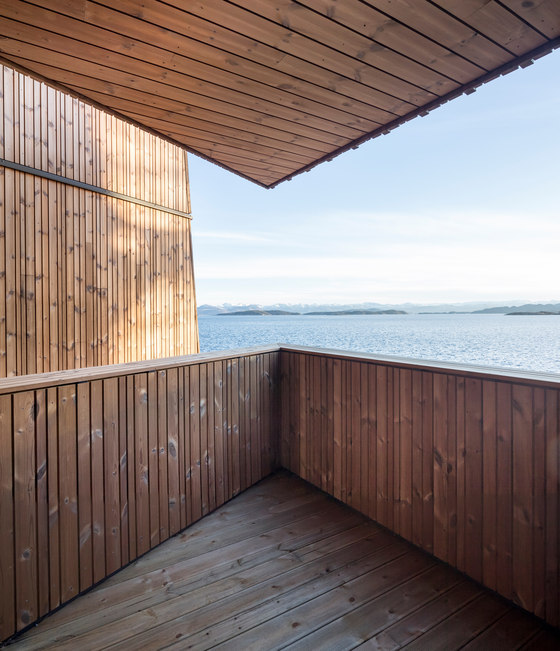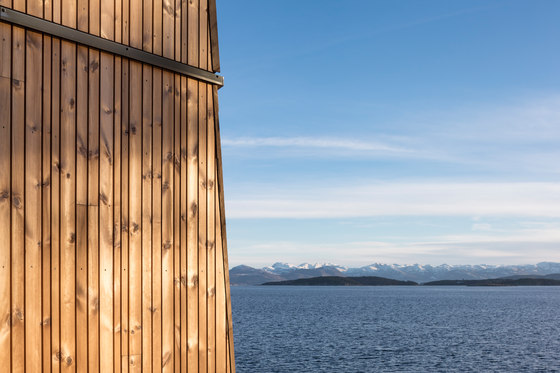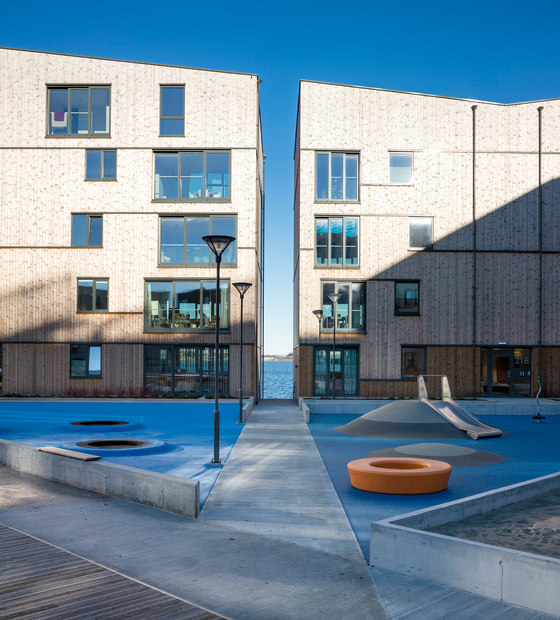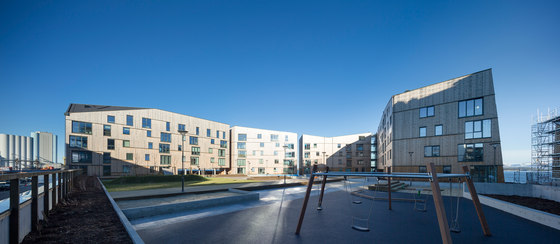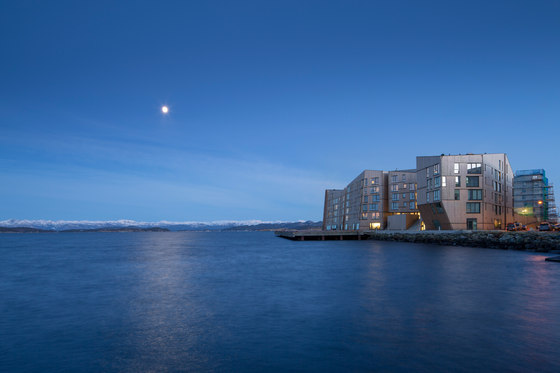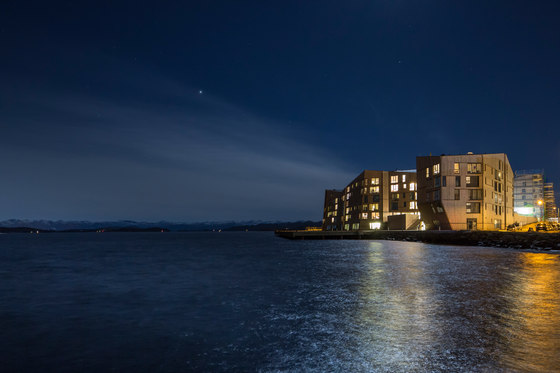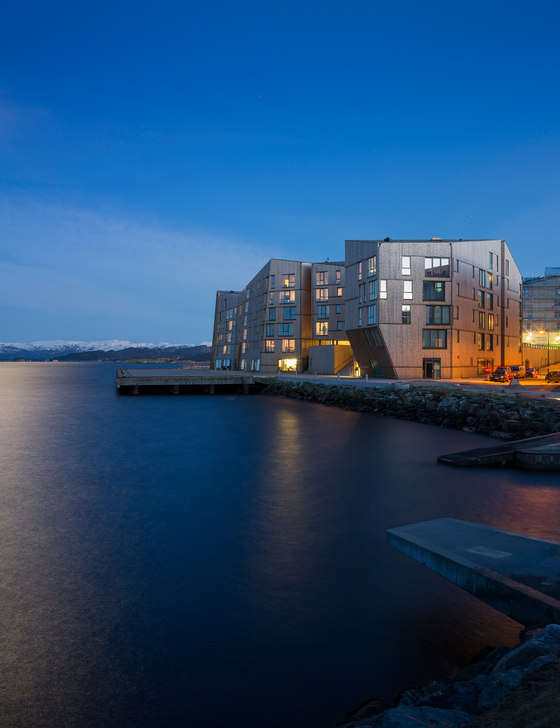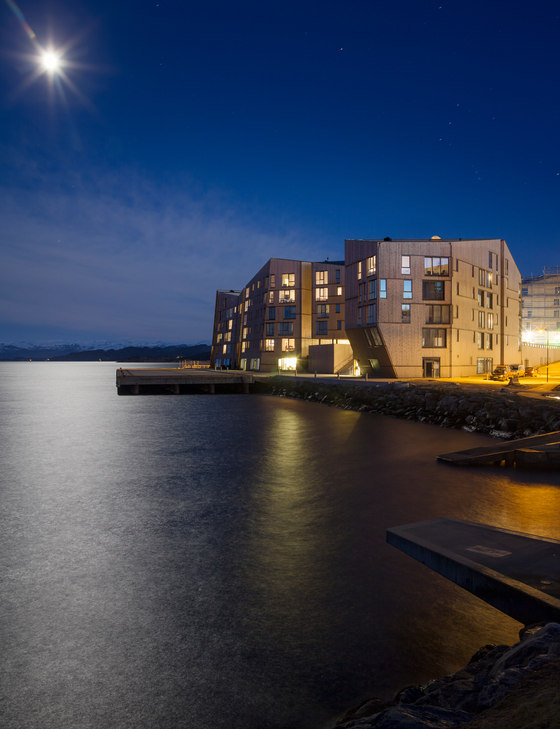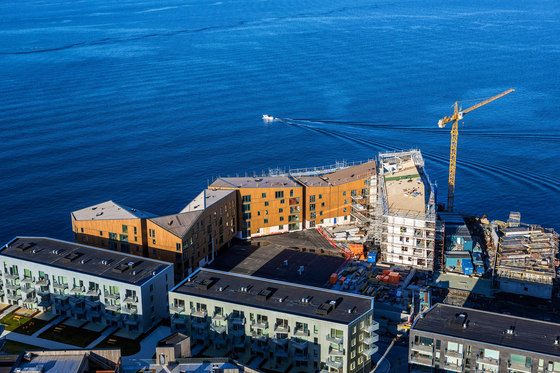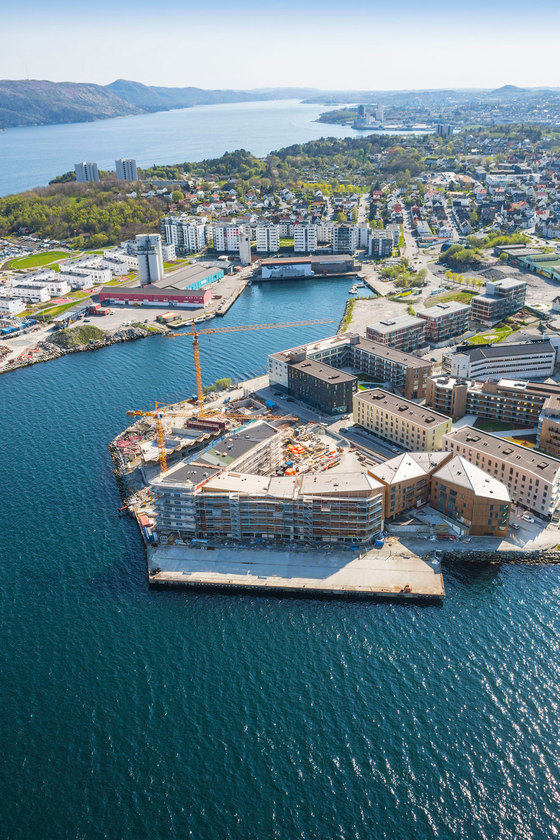AART architects reveal the first building phase of the Waterfront (in Norwegian ‘Vannkanten’) – one of the largest wooden residential developments in Europe. Located on the edge of Stavanger harbourfront, the 19,500 m2 development transforms the former industrial area into a recreational part of town.
Stavanger is the third largest metropolitan area in Norway, and has the highest concentration of wooden architecture in Northern Europe. Stavanger’s core is to a large degree made up of 18th- and 19th-century wooden houses that are considered part of the city’s cultural heritage. The vision behind the Waterfront development is thus to refine the city’s wooden architectural tradition by creating an iconic and vibrant residential development, expressing both a local identity and a global vision. Focusing on social diversity, sustainable design and innovative wooden architecture, the Waterfront development has been designed as one of the largest wooden residential developments in Europe, with a view to positioning Stavanger as a pioneering city within the field of modern wooden architecture.
THE ESSENCE OF THE CITY / the architecture
Designed by AART architects (DK) in cooperation with Kraftværk (NO), the Waterfront development is located at Stavanger harbour front. In many ways, it expresses the essence of the city by refining the city’s wooden architectural tradition, while also interpreting the Norwegian landscape. This context (cultural and geographical) was the main structural idea behind the design, as the Waterfront development further develops local building methods. At the same time, it blurs the boundary between the urban space and the dramatic Norwegian landscape by appearing as a mountain range of wood on the edge between the city and the sea.
The Waterfront development is based on a precise analysis of the site and the historical character of Stavanger. For instance, the design is inspired by the traditional 18th- and 19th-century wooden houses at the core of the city. In addition, the design is inspired by the old wooden buildings that wind along the bay and which are characterised by their many alleyways that provide glimpses of the sea. Just like the old characterful buildings, the Waterfront development winds along the harbour front and creates a dynamic and cohesive building structure. Structured as a coherent row of blocks connected by dramatic alleyways, the design takes advantage of the magnificent views of the sea and creates vibrant outdoor areas at the waterfront and facing the city.
Inspired by the diversity of historical wooden buildings along the bay and at the core of the city, the Waterfront development’s irregularity manifests itself in both its volume, and in its shapes and spaces in between. This irregularity brings life to the development by creating a broad spectrum of social meeting points, as well as providing users multiple opportunities to choose their own route through the area. The compelling environment is further enhanced by the persistent irregularity of the lines and volumes, which encapsulate the Waterfront development in a distinctive and dramatic atmosphere reminiscent of the Norwegian landscape. In this way, the dramatic play of lines and volumes creates a rich architectural expression, and helps to reinforce the identity of the local community.
A DIVERSITY OF LIFESTYLES / the flats
The vibrant and accommodating atmosphere is further supported by the inclusion of freehold flats of varying size, shape and height. For instance, the lower flats are designed as single-storied flats of varying size and shape, while the upper flats are designed as duplexes, offering a compelling spatiality and a magnificent view of the sea. In addition, all of the flats are lit from both sides, in order to provide a comfortable atmosphere and to utilise the captivating view of the sea and the city. In order to maximise the view and daylight, most of the flats have integrated sunrooms.
The Waterfront development offers many types of accommodation and caters for a range of residents, whether you are a young single person, a family with children or an elderly married couple. Thus, the design of the building complex promotes a diversity of lifestyles, enriching everyday life and promoting social interaction between generations, population groups, etc. This social ambition also manifests itself in the large communal room on the first floor in the centre of the building complex, overlooking the community square, the promenade and the sea.
SOCIAL COMMUNITIES / the outdoor areas
The Waterfront development attaches great importance to the outdoor areas, and is laid out in such a way that most utilises the unique location, promotes social communities and enriches users’ everyday life. In general, the outdoor areas are divided into two zones, namely, the promenade and the central community square. Both the promenade and the community square are fully accessible to the public.
The promenade surrounds the Waterfront development towards the sea and reaches all the way to the city centre, linking the new wooden development with the historical wooden houses at the core of the city. In this way, the promenade creates a clear line and a natural flow between the recreational atmosphere at the waterfront and the urban and historical atmosphere in the city centre.
The cafés and shops on the ground floor towards the promenade accentuate the Waterfront development’s recreational and accommodating atmosphere. By promoting social interaction and piquing the pedestrian’s curiosity, the cafés and shops carefully articulate a form of ‘moments’, which, together with the wooden façades, give the building complex a human scale and a rich architectural quality.
The recreational atmosphere is further accentuated by the flight of stairs and the wooden terrace that connect the community square with the promenade. Besides appearing as connecting links, the flight of stairs and the wooden terrace appear as casual meeting points, promoting social interaction and a sense of community. In addition, the flight of stairs and the wooden terrace are designed and oriented towards the sea, so that users can allow themselves to be captivated and soothed by the magnificent view.
SUSTAINABLE LIVING / the eco-friendly design
The Waterfront was designed using Integrated Energy Design (IED); whereby, the design premises and goals were identified at the very start of the design process. Passive features like form, orientation and awareness concerning the use of materials were thus in focus right from the very start.
The IED approach manifests itself in the irregular volumes that are shaped in relation to the local climate (the wind and the sun), with a view to reducing the demand for energy and creating a dynamic play of light and shadow during the day. In this way, the development uses solar energy to reduce the demand for energy, while the slanting roof surfaces create optimal lighting conditions by bringing sunlight into the flats and the central community square, etc. Inspired by the Norwegian landscape and the local climate with its strong Westerlies, the Waterfront development was designed as a robust and coherent residential development, appearing to observers as a mountain range of wood polished by the west coast’s gale-force winds.
The Waterfront development’s sustainable ambition is also manifest in its extensive but careful use of wood. In order to carry on and further refine the local wooden building culture, the construction is based on the Norwegian tradition of timber framing. In addition, the façade and the roof are covered with eco-labelled Moelven ThermoWood. Moelven ThermoWood is a heat-treated wood from Scandinavia's own forests and it is proof of the fact that tradition and innovation can go hand in hand. The wood is processed using the same technique used by the Vikings when they carbonised the outside surface of wooden poles in order to prolong their durability.
The use of Scandinavian wood also has a sustainable side effect, as it reduces the transport and, in consequently, the use of fossil fuels and hence CO2 emissions. By using eco-labelled wood and by avoiding environmentally unfriendly surface coatings, the Waterfront development promotes the good environmental qualities of wood, including wood as a sustainable building material throughout its life cycle.
AART architects
Developer: Kruse Smith
